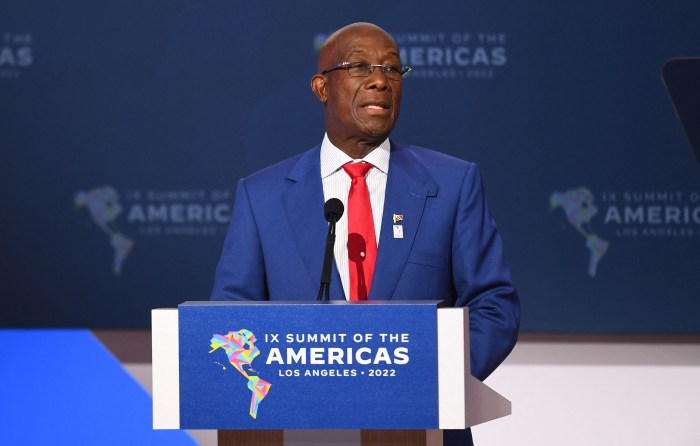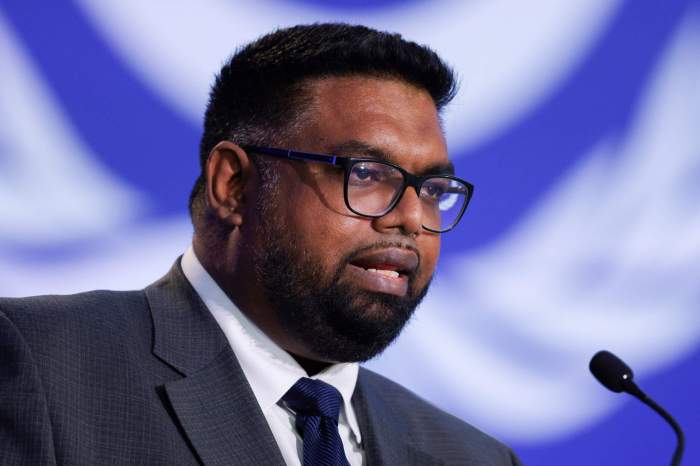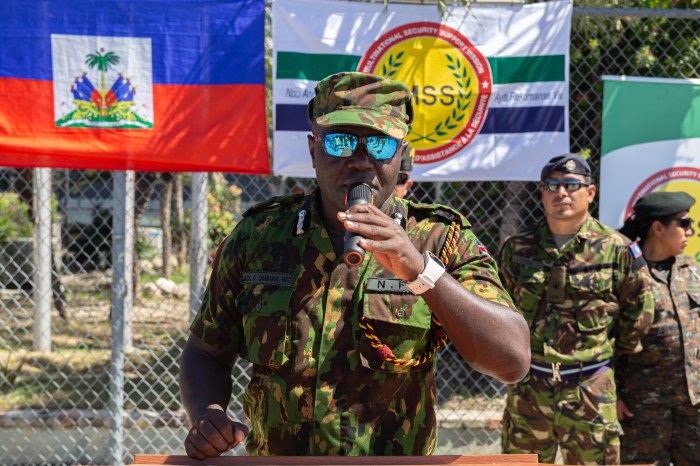The Washington, D.C.-based Pan American Health Organization (PAHO) has lauded the implementation of Guyana’s Tobacco Control Act, saying that ensuring the protection of a country’s population from the adverse effects of tobacco is a “marathon process.”
PAHO said last Wednesday that the process requires “stamina, coordination, perseverance, dedication and support,” but added that “the payoff is huge — the improved health and wellbeing of citizens.
“Guyana is one of the latest countries in the region to run this marathon,” said PAHO, stating that “these efforts culminated in the passage of the National Tobacco Act, one of the most complete tobacco control laws in the Americas.”
But PAHO said “this outstanding success brings a new set of challenges,” adding that “the race continues to ensure the right to health of the citizens of Guyana with the enforcement of these measures to protect the population from the dangers of tobacco smoke.
“It is critical to ensure that the measures outlined in the Act are implemented immediately, while, at the same time, countering the threats posed by interference from the local tobacco industry, aimed at reversing these public health gains,” it said.
PAHO said tobacco is responsible for 7 million deaths per year worldwide, including 900,000 persons who die from diseases related to exposure to tobacco smoke.
If current trends continue, tobacco use will kill 10 million people per year by 2020, said PAHO, pointing out that 70 percent of these fatalities will occur in less-developed and emerging nations.
PAHO said Guyana is a developing nation, where 78 percent of all deaths are caused by noncommunicable diseases (NCDs), strongly related to tobacco use.
It said over 15 percent of the adult population in Guyana currently smokes, adding that, “more worryingly, the results of a Global Youth Tobacco Survey conducted in 2015 revealed that 14.8 percent of adolescents aged between 13 and 15 years also use tobacco.”
“We want our children to inherit Guyana,” said the Minister of Public Health, Volda Lawrence. “And in order for us to do that, we must ensure that as parents of this nation, we protect them at all times.”
PAHO said Guyana has been a party, since 2005, to the World Health Organization’s (WHO) Framework Convention on Tobacco Control (FCTC), an international public health treaty and a guiding framework for the global fight against the tobacco epidemic.
The FCTC requires countries to apply a series of policies and measures aimed at reducing the global tobacco epidemic, PAHO said.
It said the National Tobacco Act enacted in Guyana follows several of the articles of this Convention, “and mandates the adoption and implementation of a series of tobacco control policies that make it one of the most complete tobacco control laws.”
PAHO said these include 100 percent smoke-free environments in all indoor public spaces, indoor work spaces, public transportation and specified outdoor spaces to protect people from exposure to tobacco smoke.
It also included a ban on all forms of advertising, promotion and sponsorship of tobacco products.
In addition, PAHO said Guyana’s tobacco control policies include health warnings featured on 60 percent of tobacco product packaging, including images, and a ban on the sale of tobacco products to and by minors, prohibition on vending machines sales, and a ban on the manufacture and sales of toys and candies, and any other good in the form of tobacco products.
“The adoption of this bill is not only a milestone for public health in Guyana, it is a tremendous advance for CARICOM (Caribbean Community) and the entire Region of the Americas,” said Dr. Anselm Hennis, director of PAHO’s Department of Noncommunicable Diseases and Mental Health.
“This achievement is a powerful demonstration of the critical importance of political leadership to protect the health of every citizen,” he added.
Prior to the enactment of the Guyana National Tobacco Act, PAHO said consultations were held with key stakeholders from the business community, transportation services, workers’ unions, consumer associations and the general public.
As the Act moves forward into the implementation stage, PAHO said the Guyanese government is “taking increased measures to ensure that all stakeholders are aware of exactly what the law means for them.”
These measures include specific regulations on various aspects of the National Tobacco Act; preparation for labelling and packaging regulations and the production of no-smoking signs, PAHO said.
It said the country is also implementing an information, education and awareness campaign to address some of the myths and misconceptions being promulgated by the tobacco industry.
“People think that we’re banning smoking. We are not banning smoking. We are regulating where people can smoke in the interest of public health,” said Kesaundra Alves, board chairperson of the Georgetown Public Hospital Corporation.
Lawrence said “many persons would say that smoking is a matter of choice. And yes, that choice goes both ways. It is a matter of choice that our citizens have to smoke or not to smoke.
“But it is also a responsibility and choice to make sure that, as a government, we provide the best care, that we educate our people and that we take the necessary precautions to ensure that our people do not end up on the opposite side of being healthy,” she added.
Every year, as part of the World No Tobacco Day commemorations, PAHO said WHO recognizes individuals or organizations for their accomplishments in tobacco control.
This year, PAHO said six awards were presented in the Region of the Americas, including an award to the Ministry of Public Health of Guyana.
This recognition was for the outstanding leadership of the ministry, which led to the approval of the country’s comprehensive Tobacco Control Act, PAHO said.
“This law positions Guyana as one of the most advanced CARICOM countries in the implementation of the WHO Framework Convention on Tobacco Control,” it said.



























